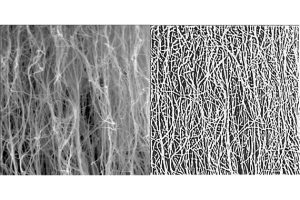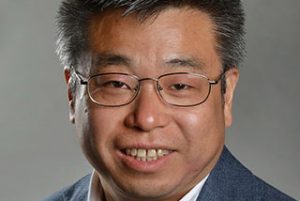
March 15, 2023
Team develops technique to segment carbon nanotube forests in images
Mizzou Engineering researchers are another step closer to controlling the properties of carbon nanotubes growing in mass quantities.

March 6, 2023
Mizzou Engineer lends protein prediction expertise to climate change studies at Danforth Plant Science Center
An inter-institutional research team is using the power of computational analysis to pinpoint which plant genes confer resilience against rising temperatures that threaten global food supplies in the coming decades. Mizzou Engineering Professor Jianlin “Jack” Cheng — one of the first scientists in the world to use deep learning, a powerful artificial intelligence technique, to predict protein structures — adds a unique perspective to the work. Since 2018, he’s been collaborating with Dr. Ru Zhang, a plant scientist at the Danforth Plant Science Center in St. Louis, to leverage computational tools in the study of plant genes.

Feb. 22, 2022
Engineer uses advanced deep learning to predict where proteins will localize within cells
A Mizzou Engineer is developing computational tools that can be used to predict where proteins will localize within a cell. Using highly advanced deep learning, the resource could help researchers better understand how proteins function or, if positioned incorrectly within a cell, misfire and cause problems.

March 26, 2021
Research Team Training AI to Better Detect Small Objects Shang working with Missouri
Artificial Intelligence (AI) is good at recognizing a single bird in an image. Where it falls short is when it tries to identify hundreds of tiny birds in an aerial photo. Professor Yi Shang and his research team have been working for three years to see where AI can improve its vision when it comes to small objects.